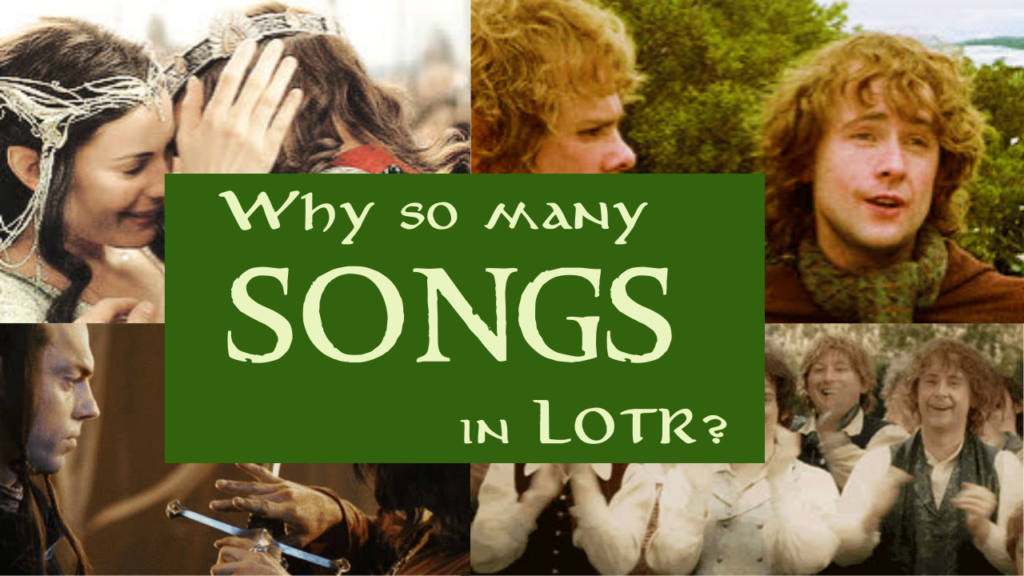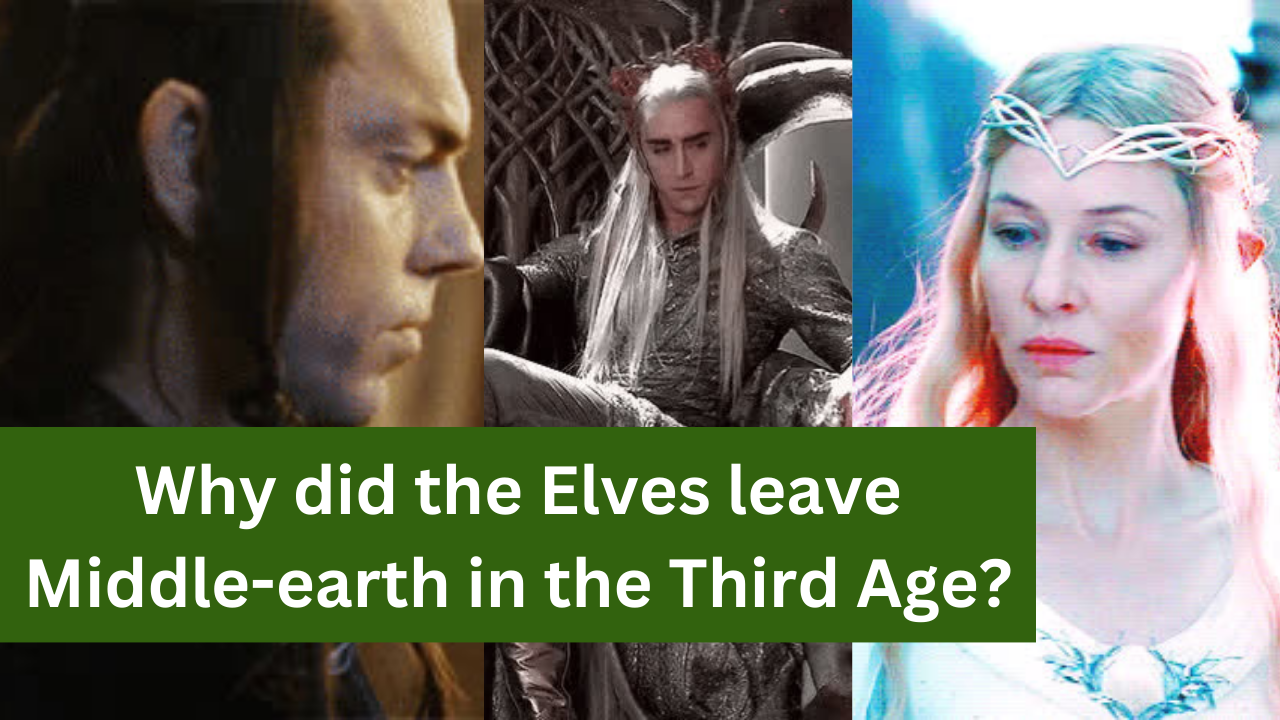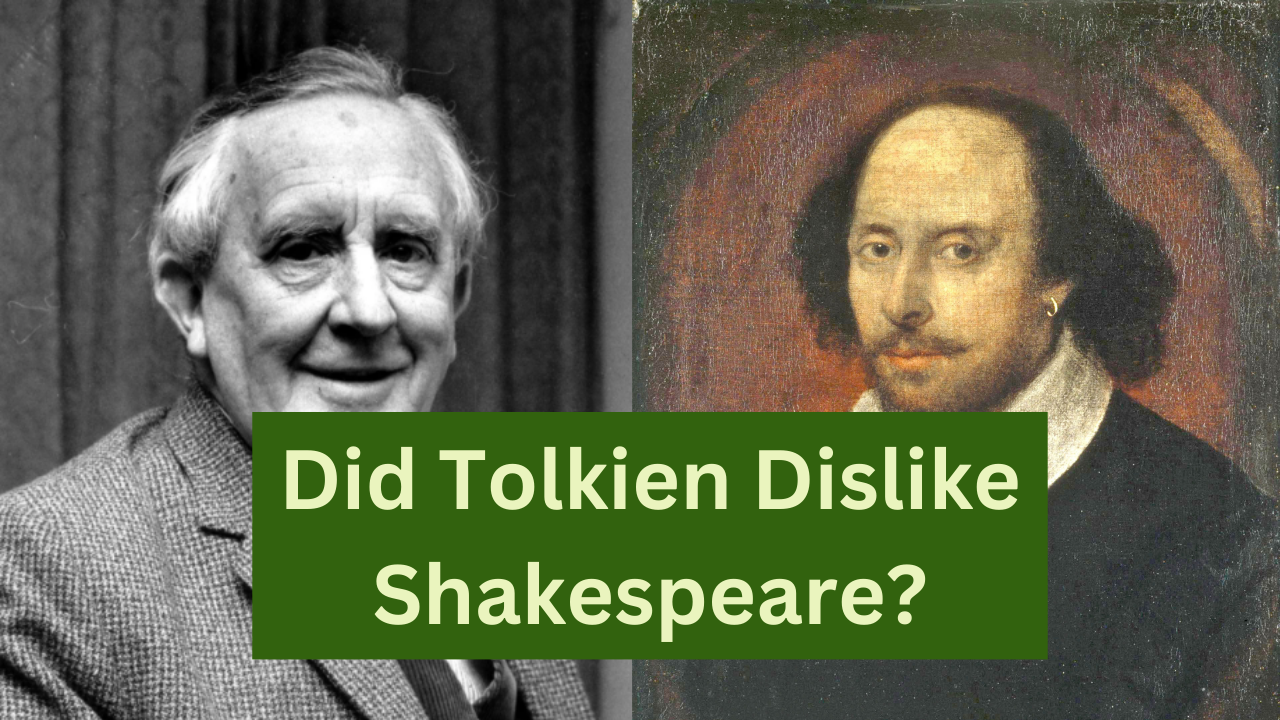LOTR and The Hobbit are known to have a lot of songs. This is a common criticism of the books – that there are just too many songs in Lord of the Rings.
While it is certainly left up to the viewer whether that is true or not, the songs happen to hold a significance like no other according to Tolkien.
The Road goes Ever On, All that is Gold Does Not Glitter, Song of Nimrodel, In Western Lands, Namarië – just to name a few of the songs in the book series.
But it is not limited to Lord of the Rings – Tolkien’s Middle-earth is said to start with Ainulindalë – the Music of the Ainur, with the earliest forms of communication being heavily reliant on music and song.
Though there is a lot of meaning associated with these songs, today I will be focusing on Tolkien’s motives on including such material.

Significance of music and song in Tolkien’s life
(Dr. Holly Ordway, Tolkien’s Faith, Ch 6: Formation – p 49)
As a child, Tolkien was a member of the Oratory and was a leader of the Oratorian Boy Scout Troop of Fr. Charles Heurtley, along with his brother Hilary.
Additionally, The Brothers of the Oratory was an important part of the Oratory, and his life, and they would place a strong emphasis on music and song being an instrument of community.
The Oratorian rule was explained by Newman as “the arts as means to draw people to God.” In addition, he further elaborates, saying it “sets great store by the arts to draw people closer to God, especially music.”
This special attention to music by the Oratorians seems to also have been derived by Philip Neri, who decided that…
“[…to] engage the young men of his day was to provide musical evenings interwoven with Scripture readings, lectures, and discussions. Because of this interest in music, composers began to compose ‘oratorios,’ pieces written specifically for the Oratory in Rome.”
However, over time this would become less related to sacred space and moved to the concert hall.
The Birmingham Oratorians would continue a tradition of producing new musical evening programs such as “The Creator and the Creature.” Music was also taken seriously in the Birmingham Oratory, with Newman having a great interest in congregational singing.
“Priscilla later recalled of her father that ‘The only kind of music I knew him to love dearly was Gregorian Plain Chant.”
As a result, we can trace a direct influence to one of the songs in Middle-earth. For example, in Namarië, an Elvish Chant that Galadriel sings to the Fellowship as they depart from Lóthlórien, Tolkien had in mind the tones used in the Lamentatio of Tenebrae, which is a chant of the Tenebrae (darkness in Latin) prayer service of Holy Week – involving 15 candles on a stand being extinguished so the service ends in darkness and the congregation leaving in silence.
Food and Cheer and Song
(Tolkien’s Faith, Ch 23: Charity and Forgiveness – p 214)
We will go to the end of The Hobbit where Bilbo and Thorin would part in kindness, and they would learn about the healing effects of forgiveness, friendship, and music.
While we may find it didn’t have as much to do with music as the first point, it still had an effect on Tolkien’s decision to include lots of songs. Up to that point, the Hobbit already had a number of songs from the Dwarves, such as Chip the Glasses and Crack the Plates and Far Over the Misty Mountains Cold, as well as Elven songs such as The Dragon Is Withered and Down the Swift Dark Stream You Go.
“Farewell, good thief,” [Thorin] said. “I go now to the halls of waiting to sit beside my fathers, until the world is renewed. Since I leave now all gold and silver, and go where it is of little worth, I wish to part in friendship from you….If more of us valued food and cheer and song above hoarded gold, it would be a merrier world. But sad or merry, I must leave it now. Farewell!” (The Hobbit)
Thorin would part with Bilbo in kindness, which is suspected to be similar to Tolkien’s legal guardian, Fr. Francis Morgan, at his death which happened two years before The Hobbit was published. Similarly, at the end of The Hobbit, the Battle of Five Armies have won, but Thorin would be wounded unto death.
Tolkien would learn about the healing effects of forgiveness, and of course, music – from Fr. Francis, much like Thorin would learn about these things from Bilbo. Meanwhile, Bilbo would also learn from Thorin as well. Either way, they would not only learn about forgiveness but also about valuing the present moment as well, presumably by way of food and cheer and song.
“…then Bilbo turned away, and he went by himself, and sat alone wrapped in a blanket, and, whether you believe it or not, he wept until his eyes were red and his voice was hoarse…I wish Thorin were living, but I’m glad we parted in kindness.” (The Hobbit)


